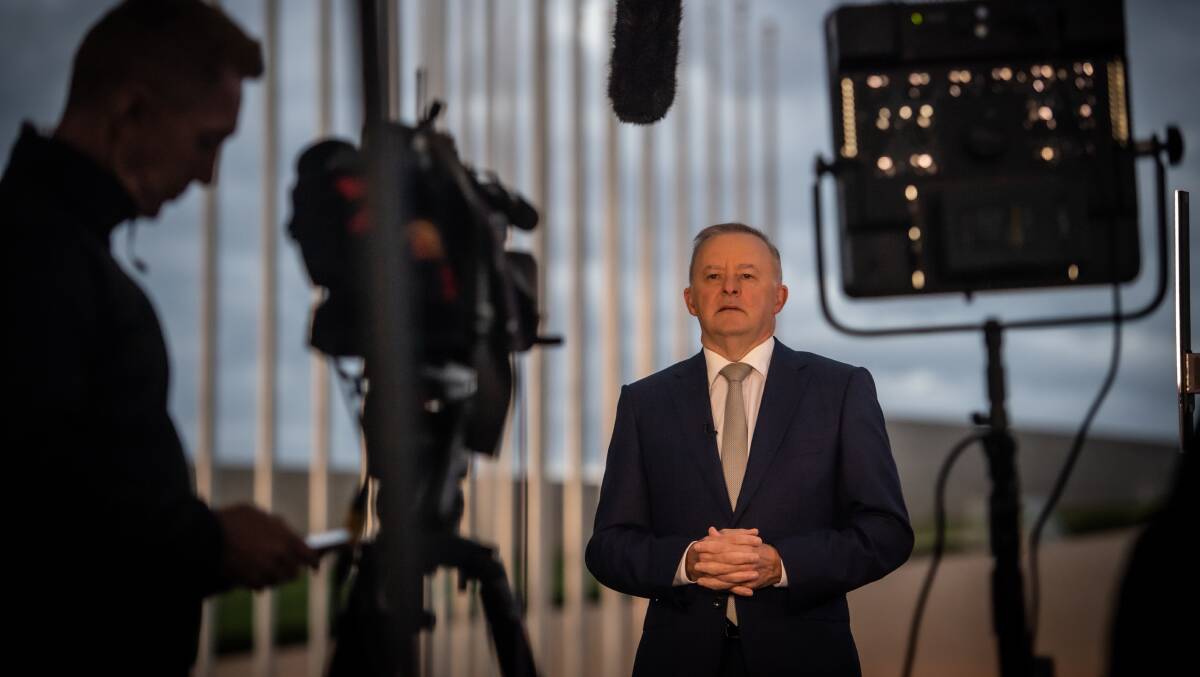
It is no surprise the first federal opinion poll of 2022 is loaded with bad news for the Morrison government.
The LNP, and the Prime Minister, have had a horrible start to the year with the COVID-19 situation in Australia is as dire as it has ever been and will likely get worse before it gets better as millions of people return to work and to school at the end of the month.
Mr Morrison, who urged premiers and chief ministers to "open up" before Christmas despite the already Omicron variant surge, has been widely blamed for the setbacks.
That was reflected in this week's Resolve survey which saw the Coalition's primary vote fall from 39 per cent to 34 per cent, a five-point drop, since last November. Labor, by contrast, has seen its primary vote jump three points from 32 per cent to 35 per cent.
That said, it is surprising given the close association Mr Morrison has had with many of the Coalition's recent misfortunes - including the refusal to issue RAT kits free of charge and the bungled deportation of Novak Djokovic - that Anthony Albanese has not crept ahead as preferred PM. Mr Morrison is preferred by 38 per cent of survey respondents compared to 31 per cent for Mr Albanese.
The Labor leader has managed to make up a lot of ground however. Last July 45 per cent of respondents preferred Mr Morrison over Mr Albanese who was languishing on 24 per cent.
While not always a decisive metric, in an age when Australian elections are becoming more and more "presidential", leaders' relative approval ratings are significant. When Kevin Rudd was reinstalled as prime minister in June 2013 he immediately leapfrogged Tony Abbott (who had been well ahead of Julia Gillard) as preferred PM.
That support quickly dwindled, however. By mid-August, just weeks out from the poll, Mr Rudd's satisfaction rating had fallen to 35 points; its lowest level ever. Mr Abbott had gained significant ground to achieve a 41 per cent satisfaction rating.
The LNP stormed back into government, winning 88 seats to Labor's 57.
Given the poll numbers Mr Morrison has little choice but to push the election back as far as he can go, possibly into May. He would be taking heart from early reports Omicron might be peaking - especially in the eastern states, and banking on an influx of RAT kits in the first weeks of February.
He and the Treasurer would also be hoping that as Omicron burns itself out the economy will bounce back strongly ahead of the pre-election budget. If all of these planets align the government is still in with a fair chance given Australia is still doing much better than most of the world when it comes to managing serious COVID-19 illness and deaths. Its recent failures are only relative to earlier successes and bear no comparison with what has happened in the US, the UK and Europe.
There is no good reason to assume Labor would have done any better.
The ALP, whose small target strategy has left them with few significant points of difference to the government on economic and climate policy, needs to outflank the LNP on border security, social equity and financial management.
This election is still very much anybody's to win or lose.







